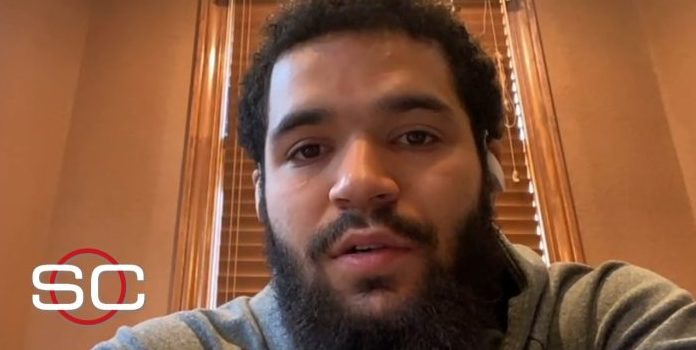Some NBA players said they are talking with each other about boycotting playoff games because a white police officer shot a black man, Jacob Blake, in Kenosha, Wisconsin on Sunday.
Blake, who resisted arrest, survived the shooting, but his family says he is paralyzed below the waist.
Rioters have burned buildings, looted, and attacked police. The unrest has led two deaths.
Toronto Raptors players met on Wednesday morning. Point guard Fred VanVleet said “a number of things have been discussed,” CNN reported.
The Raptors are scheduled to play the Celtics in Game 1 of the Conference Semifinals on Thursday.
Celtics guard Marcus Smart said a boycott is “something that’s in the back of our minds.”
VanVleet said the shooting changed his view of the playoffs because he feels that players have a responsibility to respond to public issues.
“At some point, we’re the ones always with the microphones in our face,” he said at a press conference. “We’re the ones always who have to make a stand.”
VanVleet said he was “pretty excited” about the Raptors’ advancement to the next round of the playoffs, but the shooting changed his view.
“We’re the first ones and the responsibility falls on us to make a change to stop being oppressed,” said VanVleet, who earns $9 million per year.
“Are we going to hold everybody accountable or we’re just going to put the spotlight on black people who are black athletes or entertainers and say: ‘What are you doing, what are you contributing to the community, what are you putting on the line?'”
As with the death of George Floyd — who had a long rap sheet — athletes, celebrities, and politicians said that it is unfair to consider Blake’s criminal history in his death.
Jaylen Brown, who plays for the Celtics and is the vice president of the National Basketball Players Association’s Executive Committee, said criminal history should not lead to death.

